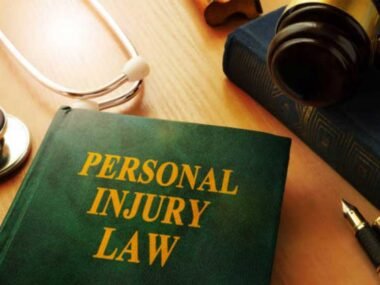Pursuing a personal injury case in Florida requires careful consideration, especially in Boca Raton, a city in Palm Beach County. This southeastern Florida region follows strict legal standards, making it essential to evaluate key factors before heading to court. Jurisdiction, evidence strength, settlement opportunities, and Florida’s comparative negligence rule all play a role. With Boca Raton’s proximity to Fort Lauderdale and its active legal landscape, understanding these elements can determine the success of your case. A systematic approach can assist you in navigating the difficulties of the state’s public interest litigation system.
Understanding Florida’s Personal Injury Laws
Florida’s personal injury laws are unique, operating under a comparative negligence system, where your percentage of fault reduces your compensation. For instance, if you’re 20% at fault, your damages decrease by 20%. Florida’s no-fault insurance system requires car accident claims to go through your PIP coverage for medical expenses and lost wages, regardless of fault. Boca Raton personal injury attorneys can assist you in navigating these intricacies, particularly if you have suffered severe or permanent injuries, allowing you to pursue full compensation from the at-fault party.
The Statute of Limitations
Timing is crucial in personal injury claims. Florida’s statute of limitations establishes a severe deadline for filing lawsuits. According to recent legal reforms, you have two years from the date of injury to launch a personal injury case. Missing this deadline can result in losing your right to seek compensation entirely. Exceptions may apply in circumstances involving minors, medical misconduct, or injuries that were not immediately apparent. Still, seeking legal assistance immediately is critical to prevent jeopardizing your claim.
Evaluating the Strength of Your Case
Before heading to court, assess the strength of your case. This involves considering;
- Evidence of Liability
Do you have solid evidence proving the other party’s negligence? This could include police reports, witness statements, photos, surveillance footage, and expert testimony.
- Extent of Damages
Courts assess economic losses, such as medical costs and lost wages, and non-economic damages, such as pain and suffering and emotional anguish. Documentation is essential for verifying these assertions.
- Credibility
Your credibility as a plaintiff, along with that of any witnesses, can significantly influence the case. Inconsistent statements or gaps in your medical treatment can be used against you.
The Costs of Litigation
Taking a personal injury case to court can be costly and lengthy, with legal fees, court costs, and delays stretching months or years. While many attorneys work on contingency, you may still cover out-of-pocket expenses. Consider whether a potential benefit award outweighs the financial and emotional strain of prolonged litigation compared to settling sooner. Weigh your options carefully with guidance from your attorney.
Potential for Settlement vs Trial
While pursuing justice in court might seem appealing, it’s worth noting that most personal injury cases in Florida settle before reaching trial. Settlements offer more control over the outcome and can provide faster compensation. Litigation may be best if the defendant’s insurance company offers an unfairly low settlement or refuses to accept liability.
Emotional and Psychological Considerations
Litigation is more than just a legal battle; it may also be emotional. Testifying in court, reliving painful incidents, and dealing with the stress of legal processes can hurt your mental health. Consider whether you’re prepared for the emotional demands of a trial and whether the potential outcome justifies that burden.
Final Thoughts
Choosing to take your personal injury lawsuit to court in Boca Raton, Florida, is a serious decision. It necessitates a detailed understanding of the legal system, a realistic appraisal of your case’s strengths and weaknesses, and careful consideration of financial and emotional issues.










